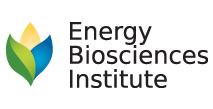A team of UC Berkeley researchers, headed by Markus Pauly of the Department of Plant & Microbiology, has identified a plant gene responsible for adding acetate to a sugar-laden hemicellulose in plant cell walls, according to a study published in Plant Cell this week.
 Hemicellulose is part of lignocellulosic plant biomass – an abundant non-food feedstock for the conversion to biofuels. However, hemicellulose contains bound acetate, which upon release through processing, presents a major inhibitor of microbial fermentation of sugars into bioethanol.
Hemicellulose is part of lignocellulosic plant biomass – an abundant non-food feedstock for the conversion to biofuels. However, hemicellulose contains bound acetate, which upon release through processing, presents a major inhibitor of microbial fermentation of sugars into bioethanol.
The research performed by the Pauly team provides a new avenue for reducing the level of acetylation in plant feedstocks and lowering the cost of biofuel production.
In 1925, Henry Ford observed that fuel is present in all vegetative matter that can be fermented. He predicted that Americans would some day grow their own fuel. However, in 2010, global biofuel production reached 28 billion US gallons, and biofuel accounted for only 2.7% of the world's transportation fuel.
Bioethanol, a popular type of biofuel, is largely derived from sugary food crops such as corn and sugarcane. However, technologies are being developed to generate bioethanol from non-food sources, such as the lignocellulosics present in switchgrass and trees. The sugars locked in the polymers of cell walls composed of cellulose, hemicellulose packed in lignin can be extracted and fermented by yeast into bioethanol. A major obstacle to this strategy is that most wall polysaccharides contain acetate groups, and the acetate released from these molecules during processing inhibits the activity of the microbes that ferment sugars into alcohol.
Based on techno-economical models, a 20 percent reduction in biomass acetylation is predicted to translate into a 10 percent reduction in bioethanol price. A major goal in the field of plant biofuel research is to diminish the O-acetate content in the cell walls of plants, possibly by blocking the enzymes that acetylate the cell wall polymers. However, little has been known about the acetylation enzymes in plants.
Identifying Enzymes
Pauly, a plant biologist in the Department of Plant & Microbial Biology, and a researcher at the Energy Biosciences Institute (EBI), set out to identify the enzymes that acetylate the polysaccharides that are present in lignocellulosic feedstocks. Their initial work focused on xyloglucan, a type of hemicellulose that is abundant in plant cell walls. Using a mass spectrometric technique, the scientists isolated a mutant from among a mutagenized population of the model plant Arabidopsis, a member of the mustard and cabbage family, that exhibited a 20 to 45 percent reduction in acetate bound to xyloglucan.
 The researchers mapped the mutation to a physical location in the Arabidopsis genome and named the gene locus “Altered Hemicellulose Xyloglucan 4,” or AXY4. Blocking the expression of AXY4 in Arabidopsis leads to complete elimination of acetylation of a hemicellulose. A natural variety of Arabidopsis growing in northern Scotland also has low levels of xyloglucan O-acetylation. Intriguingly, this variety was found to have a natural mutation in AXY4. This finding demonstrates that lack of xyloglucan O-acetylation does not represent a selective disadvantage for the plant, and supports the feasibility of genetically blocking the expression of the protein that controls O-acetylation in plants destined for biofuel production.
The researchers mapped the mutation to a physical location in the Arabidopsis genome and named the gene locus “Altered Hemicellulose Xyloglucan 4,” or AXY4. Blocking the expression of AXY4 in Arabidopsis leads to complete elimination of acetylation of a hemicellulose. A natural variety of Arabidopsis growing in northern Scotland also has low levels of xyloglucan O-acetylation. Intriguingly, this variety was found to have a natural mutation in AXY4. This finding demonstrates that lack of xyloglucan O-acetylation does not represent a selective disadvantage for the plant, and supports the feasibility of genetically blocking the expression of the protein that controls O-acetylation in plants destined for biofuel production.
“The identification of the first gene to encode a polysaccharide O-acetyltransferase opens the door for identifying similar genes in bioenergy crop feedstocks, such as Miscanthus or other energy grasses,” said Pauly. “These genes can be used as genetic markers to facilitate breeding programs that aim to generate biofuel feedstocks with reduced lignocellulosic acetate content.”

In addition to Pauly, other authors on the Plant Cell paper include Sascha Gille, Amancio de Souza, Guangyan Xiong, Monique Benz, Kun Cheng, and Alex Schultink. Also participating was Ida-Barbara Reca of the Department of Energy Great Lakes Bioenergy Center at Michigan State University.
The Energy Biosciences Institute is a public-private collaboration in which bioscience and biological techniques are being applied to help solve the global energy challenge. The partnership, funded with $500 million for 10 years from the energy company British Petroleum, includes researchers from the University of California, Berkeley; the University of Illinois at Urbana-Champaign; and the Lawrence Berkeley National Laboratory.
The paper, “O-acetylation of the Hemicellulose Xyloglucan Requires AXY4/AXY4L Proteins with a TBL and DUF231 Domain,” can be accessed at Link to Paper at PlantCell.org
Plant Cell is the Journal of the American Society of Plant Biologists.
